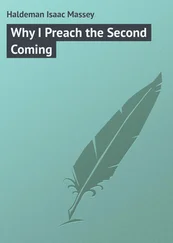For a long time he stood twiddling the keys and looking at the Mercedes. He opened the trunk. There lay the Greener in its case and the Luger in its holster. He stood, foot on bumper, thinking.
Vance came by twice a day to give him his “acid” and to take blood to test his pH. He came close as a lover, breath strong and sweet, sniffed at him, looked into his eyeballs. He told his patient he smelled healthy, his pressure was down, and the arteries in his eyegrounds were as supple as snakes.
Not only did Will Barrett tolerate the drug, he seemed in a queer way to prosper. A smell of pesticide hung in his nostrils. He smelled like a house sprayed for termites. A chemical exuberance took hold of him. The simplest of all atoms gave him a complex sense of well-being. If the treatment was dangerous, he felt as safe as a knife thrower’s girl. Friendly knives zipped past his head, between his legs, fanned his ears, went zoing straight to their malignant target. A cool Carolina Salk rattling his test tubes at Duke had saved his life. How odd to be rescued, salvaged, converted by the hydrogen ion! a proton as simple as a billiard ball! Did it all come down to chemistry after all? Had he fallen down in a bunker, pounded the sand with his fist in a rage of longing for Ethel Rosenblum because his pH was 7.6? A quirky energy flowed into his muscles. He couldn’t sleep but didn’t mind. He rose at all hours, dressed carefully, prowled the halls, explored the grounds, even drove the Mercedes. He wanted to see Allie. He forgot about Jews but not Allie. Had his longing for her been a hydrogen-ion deficiency, a wahnsinnige Sehnsucht? No, hydrogen or no hydrogen, he wanted to see her face. Would the protons now coursing through his brain and eyegrounds make her look different? Why hadn’t she come to see him? He headed for the club, but a twisting in his head caused him to turn the Mercedes to correct the twist. Again the Mercedes took to the woods. Maybe he’d better drive around the block at first.
Then why not walk? But when he struck out through the woods, he found himself turning against the gyroscope in his head and went round in a circle. He had to stick to the sidewalks like ordinary folk.
Things increased in density and stood apart. He could see around trees. But time ran together. Was it Wednesday or Sunday? He bought a calendar Timex watch. Things increased in value. As he drove the Mercedes his attention was transfixed by the luminous turquoise of a traffic light. It glowed like a huge valuable jewel! He stopped and gazed until it turned into a great hot ruby. Surely red meant go, not stop. He went. A woman in a Dodge pickup cursed him.
He stopped driving and took up golf.
“You want to putt a round?” he asked Jack Curl.
“You got to be kidding. Get Vance or Slocum.”
He got Slocum. Slocum too seemed to like him better. Everybody was relieved that he was sick not crazy, that he was being treated and was getting better. Being sick made him feel better too.
His driving and walking were peculiar, but his putting was deadly. The little hydrogen ions had odd effects. The gyroscope spinning in his head hurt his driving the Mercedes but helped his putting. All he had to do was settle over a putt, wait till the gyroscope steadied and the twisting stopped and zing, the ball flew straight for the cup like a missile locked on target.
Bertie came by. Will Barrett beat him seventeen up on eighteen holes. Bertie looked left and right. “You don’t have to turn in a scorecard here, do you?” “No.” “Thank God. It won’t affect your handicap.” “That’s right.” Bertie winked. “We missed the Seniors here but we’re signed up for Hilton Head and the whole Southern tour. We can’t miss.”
2
A wiry old man was watering a young pine with a bucket.
Will Barrett watched him for a while. At first the old man appeared as part of the scenery and therefore of no particular moment, old-man-watering-tree-in-front-of-old-folks’-home. Then it occurred to him to wonder. Why would anyone want to water a pine tree with a bucket?
Standing on the porch, he asked him.
The old man frowned and went on watering but presently he replied: “They planted these seedlings too early. They should have waited till the winter months when there is plenty of rain.”
“Seedlings? Those are not seedlings. They’re two years old. I know because my wife had them planted.”
“They still need water,” said the old man, not raising his eyes from the pine.
“You know about plants?”
Yes, he did. His name was Lionel Eberhart, born in Kingsport, Tennessee. He had started out as a gardener in Asheville with one old truck, hiring out himself and wife and two sons and one daughter to tend lawns. They weren’t afraid of work. He started his own nursery. Before he retired he was wholesaling lots of one hundred thousand rhododendron and laurel to Sears, Roebuck.
“Why did you retire?”
“My wife died. I had three heart attacks. My two sons wanted to put me here. My daughter wanted me to live with her but her husband didn’t. So the doctor put me here. But that’s all right! They all right! I wouldn’t want to live with them! So.” He went to fill his bucket.
“Is that all you can find to do around here, water a pine tree?”
“They got a gardener. Your wife took care of everything. She surely was a nice lady. They got ever’ thing around here a fellow would need.” Still, he did not raise his eyes from the small wet pine.
He gazed down at the old man. Quick and wiry, an East Tennessee Yankee, yes, he’d drive his wife, sons, daughter crazy with his puttering. Yes, of course he’d seen the old man before, always outside, walking with his quick stoop, raking leaves, watering trees, pestering the gardener. He’d live another thirty years.
3
Jack Curl was leaving for Hilton Head and an ecumenical meeting between a Greek Orthodox archimandrite, a Maronite patriarch, and the Episcopal bishop of North Carolina, a meeting suggested in fact by Jack Curl. Could Jack Curl reunite Christendom? He laughed, socked himself, and did a turn. Why not? Isn’t it just the sort of damn fool thing God might favor? Actually Marion had conceived the idea before she died and even provided the funds.
“You mean that’s the sort of thing the Peabody Trust would undertake?” he asked Jack.
“You got it, Will,” said Jack, his laughter turning off like a light.
“And you want me to put Marion’s money in a trust to be administered by you.”
“Or Leslie. Or both.”
“Well, which?”
“Take your pick. Then we’ll run it up the flagpole and see who salutes it.”
“What does that mean?”
Jack Curl shrugged and looked vague. “You’re the lawyer. Check it out with Slocum. It comes down to naming a trustee or co-trustees. I’m glad to serve.”
Jack Curl showed him around St. Mark’s before he left, even though Jack must have known that he used to pilot Marion through once a week in her wheelchair. The dining room was pretty and the food good, tables for four, ladies in dresses and hairdos, gents in coats and ties, grace before meals.
“Now,” said Jack, “I’m going to show you something that’s going to blow your mind. Not even Marion knew about it. It’s strictly off limits to the ladies. Okay. I’m going to show you a bunch of guys having a ball. I spend a little time here myself. A little, ha.”
They climbed steep steps. A door opened into a spacious attic. Tracks and trains ran everywhere through a waist-high landscape. Not children’s toy trains but good-sized Pennsylvania diesels, an L & N steam locomotive, a Southern Pacific freight, a Twentieth Century Limited, crossed trestles, ran through tunnels, stopped at stations, switched onto sidings, off-loaded bales of cotton, took on soybean oil. Bars came down at crossings. Bells donged. A mechanical darky on a mule doffed his cap. Lonesome whistles blew. Half a dozen men, old men, operated control panels, switches, water towers, roundhouse turnarounds. Most of the men wore railroader’s caps.
Читать дальше












